This isn’t a Victorian era version of Sword Art Online. It’s the opening scene of Lord of the Mysteries, a Chinese webnovel written by the author Cuttlefish That Loves Diving.
Chinese webnovels are original stories published on websites like Qidian and JJWXC. Think Wattpad, but in Mandarin, and with paywalls and much lengthier stories. It’s not uncommon to find novels with thousands of chapters—Lord of the Mysteries has 1232—and authors usually publish a chapter a day.

“The sole purpose of webnovels is to make people feel shiok,” says Weichen, who has been reading them for ten years.
A post on Reddit describes them as a “combination of what YA novels and shitty romance novels and Dan Brown books and stuff are to English readers—utter shite, but also an important part of the ecosystem”.
But they’re popular enough that a good number are adapted into dramas. Popular shows like The Untamed (2019) and The Lost Tomb (2015) started from these webnovels.
As Weichen explains: “The script is right there and is known to appeal to the wider audience.”

Unsurprisingly, with a large pool of English-Mandarin bilinguals, Singapore is home to many Chinese webnovel translators. “If I’m not wrong, Singapore has one of the most [number of] translators in the whole world,” Thyaeria, one such translator, notes.
Typically, translators drop a comment on the original work to ask authors for permission to translate their stories. These fan translators then post the translations on forums like SPCNET or their own blogs.
It was a small community in which translators and readers would regularly interact with each other: readers would comment on chapters, translators would reply, and forums served as a place for webnovel fans to congregate. Translators would sometimes even accept small donations from readers as a token of appreciation.
However, everything changed when Qidian—a Chinese webnovel site backed by Tencent, a Chinese conglomerate with a net worth of 583 billion dollars—came into the picture.
Even though his Mandarin was “atrocious”, he found himself wanting to give back to the community. So, in 2015, at a time when everything was still being translated by fans, he too started translating Tales of Demons and Gods.
“That novel swiftly became one of the most famous at that point of time.”
Thyaeria enjoyed engaging with readers who would comment every time he posted a chapter: “It’s quite satisfying la, it’s quite satisfying when you read the comments.”
In the early days, readers had to repeatedly refresh the /r/NovelTranslations subreddit in order to see when a new chapter had been posted. Then, prettier, more user-friendly sites like Wuxiaworld, where groups of translators gathered, came along. Wuxiaworld itself launched in December 2014.
“At that point of time, everything was fan translation,” Thyaeria describes. “All the individual translators had our own WordPress and stuff like that.”
Thyaeria shares that at the time, most people were translating as a passion project. They were translating simply because they loved those novels and didn’t need to adhere to a fixed updating schedule.

“There was one person, I think he set up a Pateron account,” TranslationRaven, who used to translate Godly Hunter, recalls.
“He had a whole great, gigantic stockpile of 300 chapters. And then, on Patreon, he was offering access to these 300 chapters for the wonderful price of $300. And, at the time, I do remember seeing that Patreon page, at one point of time, was having like $30,000 USD a month, because people were buying these advance chapters. They were hungry.”
For many translators, their passion projects suddenly turned into something that could actually earn money. Qidian, the legal copyright holder of the original stories, realised this too.
In December 2016, Wuxiaworld signed a contract with Qidian—the original announcement on Wuxiaworld is now a dead link—which granted them a 10-year license to translate and publish 20 novels from Qidian.
Although translators had previously obtained permission by contacting the authors directly, the problem now was that the authors had already given up the rights to their work. Qidian now owned all the licenses, and translators have to obtain these licenses in order to post any translations legally.
Translators were worried about series that were not within the scope of the agreement, but at least they could keep some translations up.
Everything seemed okay.
And then, in April 2017, Qidian launched “Webnovel”, their own English platform. One month later, they started recruiting translators and editors.
Five days after the recruitment post, this happened:
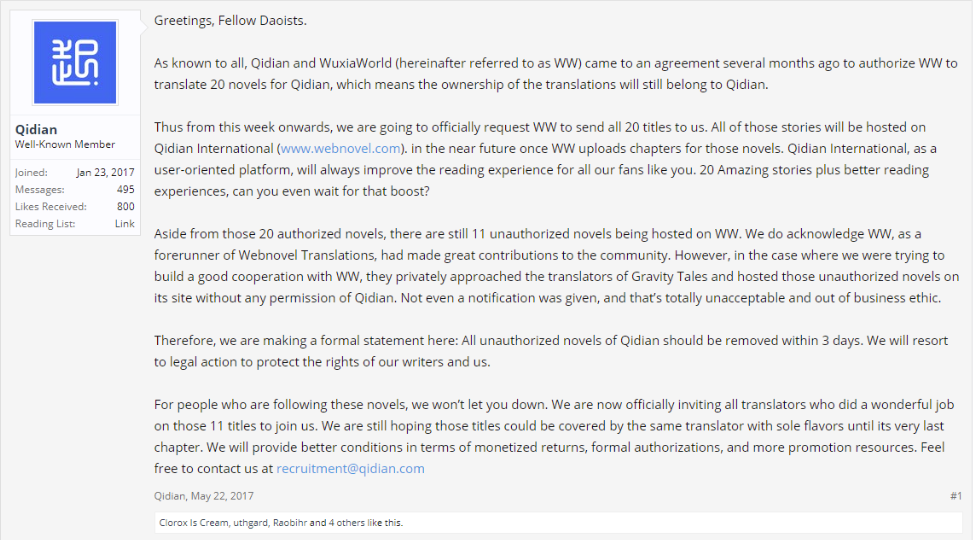
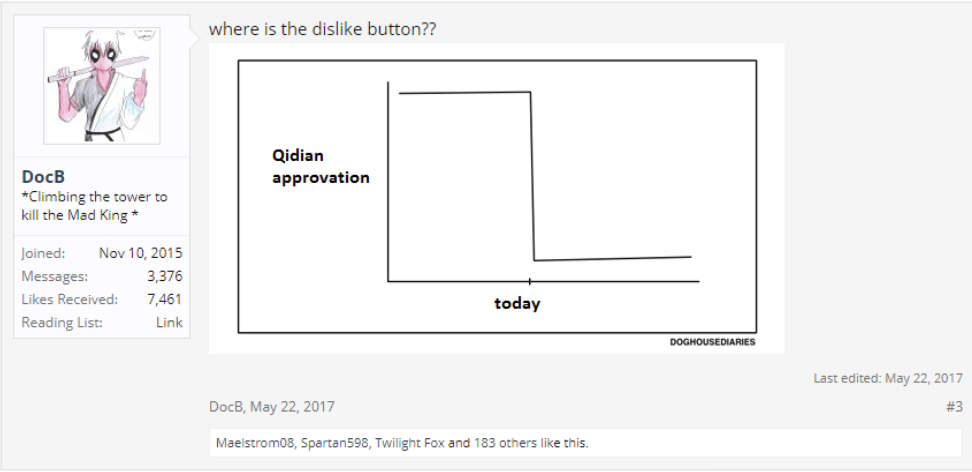
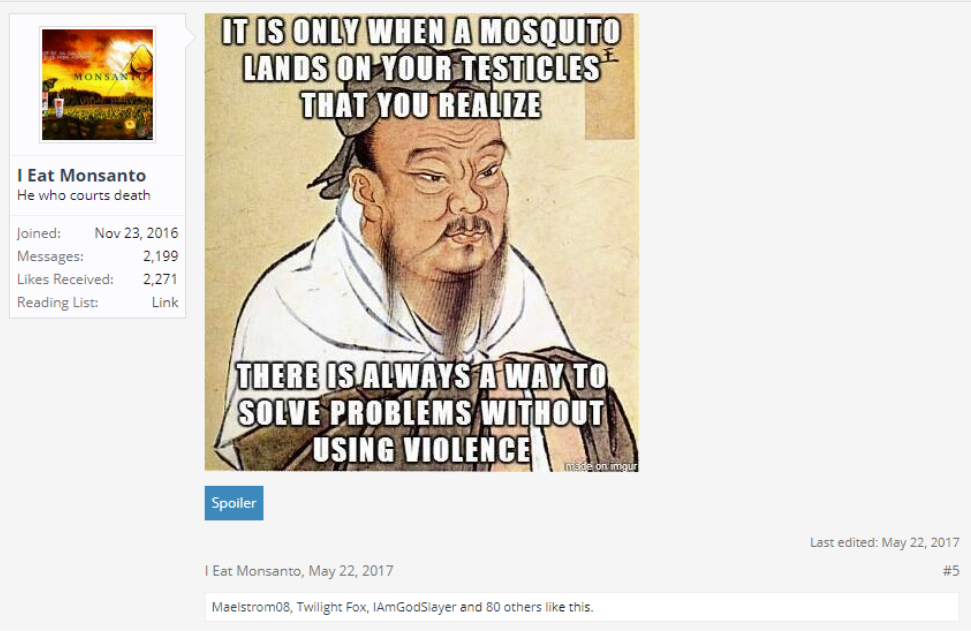
RWX, the founder of Wuxiaworld responded by calling Qidian’s claims “libelous”, marking the start of a rocky back-and-forth between the conglomerate-backed Qidian and fan-created Wuxiaworld.
One month later, Wuxiaworld was hit with a DMCA complaint. Their translations started appearing on Webnovel; it seemed as if Wuxiaworld had been bulk scraped, with its translations copied onto Webnovel word for word.
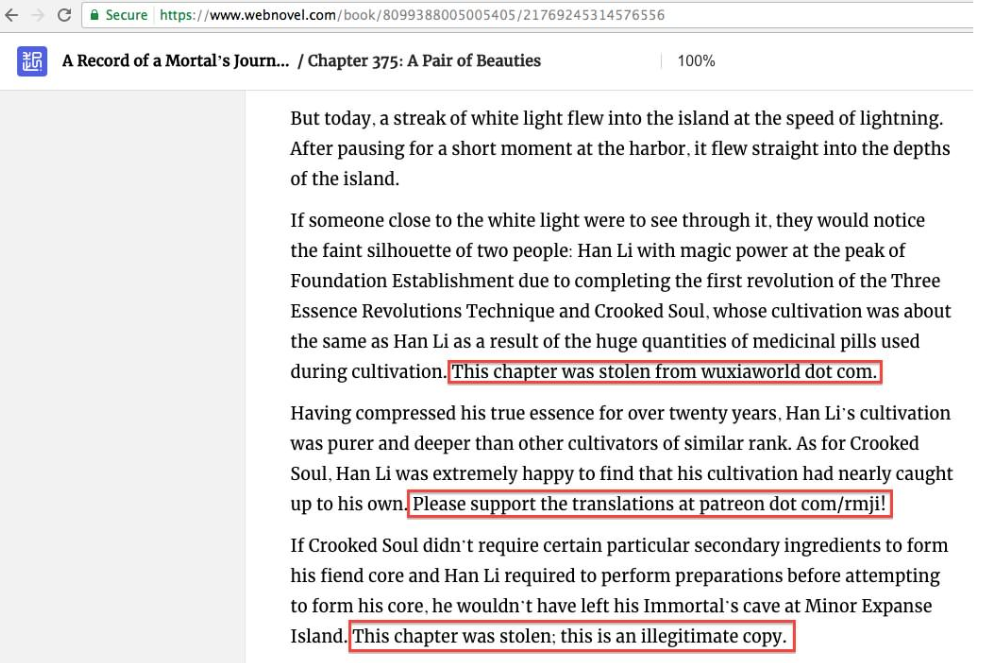
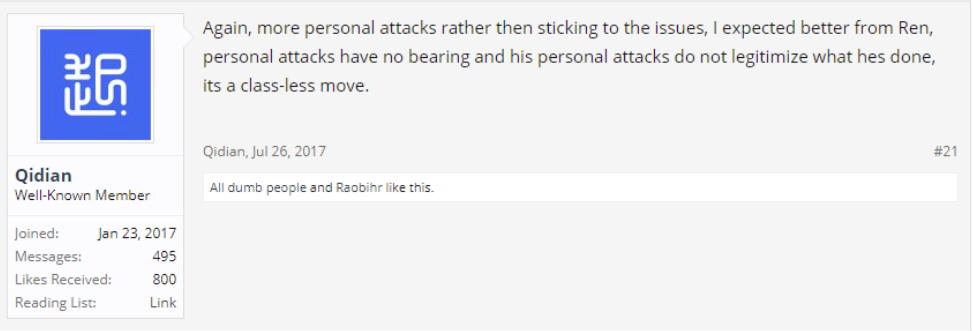

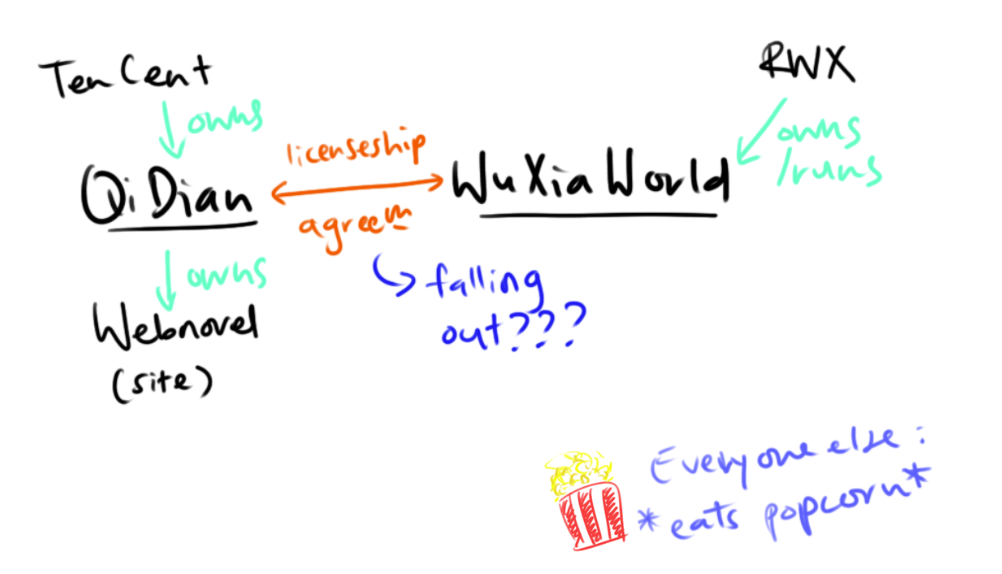
Translators not only have to convey the story in another language, but also pick appropriate English terms for concepts unique to each story, like “Heavenly Lightning of Absolute Destruction”.
“Each chapter on average is about 3300 Chinese characters. If you put it in font size 12, that would be five pages,” TranslationRaven explains.
Some translators translate as many as 14 chapters a week to meet demand.
“You’re going to have to do ten pages a day. Even if you’re not doing anything, you’re just typing in English and writing one word over and over, that would take you a lot of time wouldn’t it?”
And for a novel that’s 1496 chapters long, like A Record of a Mortal’s Journey to Immortality, that’s years of hard work.
Readers started to fear that once there was a way to skip ads, the ads would appear on every chapter, “then it just goes full paywall”.
“Step 2 of the paywall plan is in place,” Reddit user Z1rith wrote. “I give it 3 more months at most.”
By July 2018, Webnovel had implemented paywalls.
“After they were done with throwing the lawsuit cases and … consolidating their platforms, they threw [up] the paywall,” Thyaeria explains.
The conflict between Qidian and Wuxiaworld, and the ensuing paywalling of stories on the Qidian-owned Webnovel, turned many readers against Qidian. They were called out for providing badly edited machine translations and outright stealing novels from other authors. Even though in some cases it might actually cost less to read on Qidian-owned Webnovel, some readers still refuse to support the platform.
Just last month, controversy erupted over the changes made to contracts between Qidian and their authors.

“Before the whole licenseship thing kicked off and the whole company thing started, most of the community was on Reddit. So everyone would go on Reddit, discuss this and that, and the translator will pop up once in a while and chat with them,” Thyaeria explains. “Now it’s split up between Wuxiaworld Discord, Webnovel Discord, then maybe a few still on Reddit, and some on NovelUpdates.”
Still, Thyaeria remains active in the community and has a full-time job translating with Wuxiaworld. He spends 6 to 8 hours a day, including weekends, translating up to 21 chapters a week.
“Back then, during the very very first year [when] this translation thing started to pop up, no one expected it to be a career.”
If, after knowing all the red tape that may come with obtaining a license to translate a novel, you’re still tempted to try out a career in translation, be careful.
“My advice is don’t,” TranslationRaven says.
She warns: “This really is an all or nothing thing. You do your fourteen [chapters a week] to get your readership up, or else you’re so slow, you’ll be like, I’m not gonna sit in this novel and wait six years to finish it. If you do it double time, that’s three years. But, still, three years.”
The monetisation of webnovels allowed him, and many other translators, to turn their passion projects into full-time jobs.
But it was this very same monetisation that caught the attention of big conglomerates and led to the drawn-out battle for licenseship rights.
“In the past, right, the so-called enemies we had were just those pirated websites. And then after that when the whole Webnovel came in, the whole matter went onto a whole new level,” Thyaeria summarises.

There are no recent mentions of lawsuits. The dual-hosting of translations on Qidian-owned Webnovel seems to be in a legal grey area: Webnovel owns the original work, but the translations were not produced by them.
Thyaeria notes that new readers are more open-minded about the different platforms.
“Most of the newer readers usually come from the manhua, so when the newer readers join in, they don’t really know about the history itself.”
Thyaeria’s first translated novel, Tales of Demons and Gods, can still be read on Wuxiaworld. But there is also a copy available on Qidian’s Webnovel, albeit incomplete, and the first chapter looks awfully similar to his.
Like any other niche Internet subculture, the community has an ecosystem of its own, with histories not usually known by those outside of the community. Yet these histories have surprising parallels: how many times have you heard the phrase “turn your passion into profit”?
Or maybe that’s actually a trap? What about the perennial dichotomy of the big, bad conglomerate versus the small, weak employee/SME/temp staff?
These dynamics played out in Qidian’s crackdown of 2017. They still play out today, across different subcultures, communities, and industries.
The question of whether we should turn our side hobby into a side hustle—whether monetising our joy will diminish it—is one that many people, not just Chinese webnovel translators, grapple with. Perhaps, then, by digging into corners of the Internet like these spaces, we can find echoes of stories that mirror our own.





